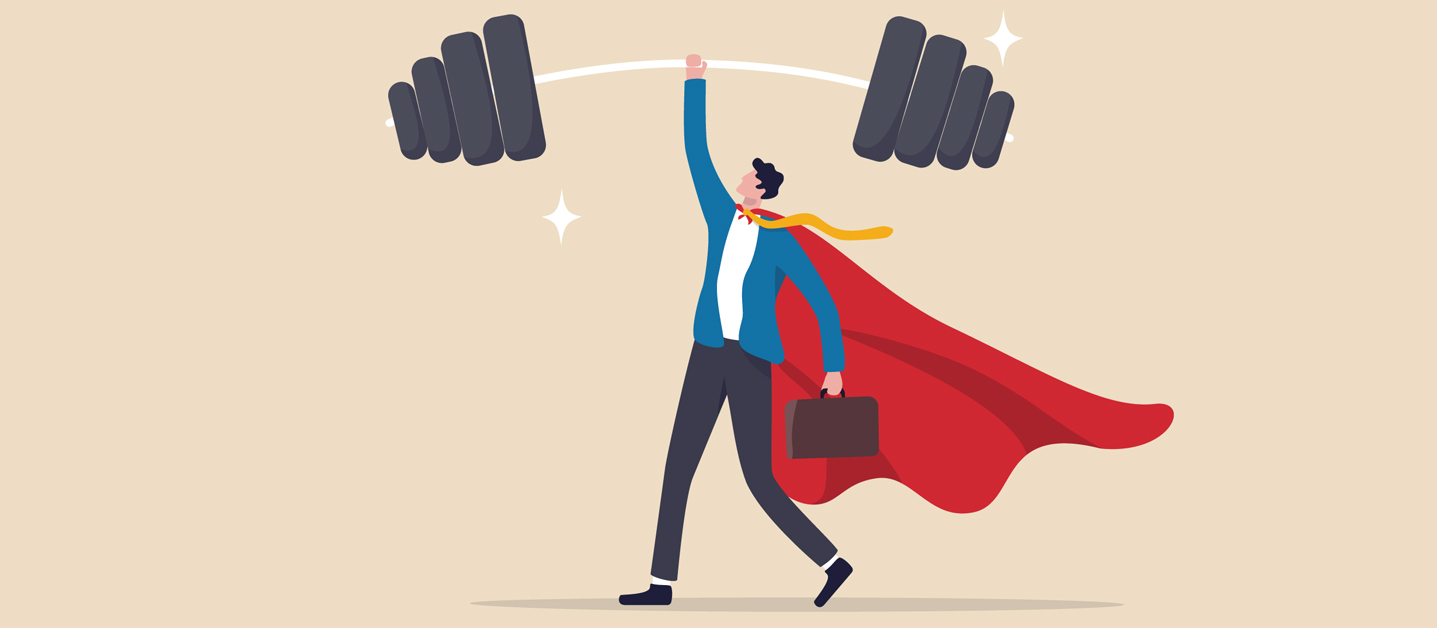Relax: I’m lightening the mood. Last month I dared you to press pause on your pain-killing machine to acknowledge your painful emotions. Permitting yourself to be vulnerable is important, especially if you rarely do so. Just note, I did say pause and not stop. I don’t want you getting stuck in this not-good-enough space. So let’s shift our attention to a much more uplifting topic: our strengths. The antidote to not good enough.
One of the biggest self-development errors is focusing too heavily on your weaknesses. You can make improvements but often feel minimal satisfaction. That’s because you rarely end up excelling at your weaknesses. Instead, you move from poor to mediocre and use a lot of energy doing so. The reason is that you are performing tasks that don’t come naturally. This means your energy is diverted from the things you are good at, so you end up doing a mediocre job at those too. Despite your best efforts, you can feel you are falling short of everything.
On the flip side, when you spend your time and energy improving your strengths, you thrive. It is often easiest to apply this in a work or educational setting. Think about times you were performing at your best and felt most confident. Chances are this is when you were doing activities you are naturally good at. Similarly, I bet the training activities you come home raving about are developing skills or attributes that come naturally to you. Sounds like an obvious path to feeling good enough, doesn’t it? Spend time performing and developing things you are naturally good at and you can go from good to great.
Having people with different strengths and optimising them makes sense in the context of employment, doesn’t it? I’m certainly glad there are medical professionals who can stomach the sight of blood better than me! So why does this concept rarely translate to our personal relationships? In this domain, different strengths can dissolve away into weaknesses. We are bewildered others find it so hard to do things that come naturally to us. “Why can’t you put things back in their place?” is countered with “why can’t you just relax?”. This common organised vs easy-going combination becomes the source of frustration and criticism rather than a complementary strengths-duo.
No, I am not suggesting that the organised people do all the housework while the easy-going one watches TV. Instead, the organised person can put processes in place that help maintain tidiness and the easy-going person can manage expectations (the spices don’t need to be ordered alphabetically). Then when the house is tidy to an acceptable level, you can spend quality downtime together and both feel valued and content. I know, some of you are still busting to put those spices in order, so do it. However, if your partner puts the dill before basil, know they didn’t do it on purpose. Attention to detail just isn’t their strength.
This is the most frequent difference I hear from clients, but there are loads. Let us bring the focus back to you. What are your skill and character strengths? Do you utilise these in your relationships? In what situations are your strengths complimented and when are they criticised? Can you think of a recent conflict where both people’s strengths were reframed as weaknesses? Could this conflict be resolved by playing to your strengths? Are you quicker to criticise than compliment? Armed with these answers, start talking about how you can maximise the combined strengths in your relationships. I bet it feels better than scrutinising your downfalls.
I’m not suggesting you never work on your weaknesses. We all need to do things we are not particularly good at sometimes. Taking steps to do them to the best of your ability is a good thing. You can also enjoy doing these things for the fun of it. Just be mindful if you spend most of your time trying to improve in these areas and frequently feel that you are failing. If this is happening, stop trying to do it alone. Utilise the strengths of the people around you. Ask for their help to improve. Let them know you have selected them for their skills and abilities in that area. If help is forthcoming, express gratitude. People love to feel they are of value to others. Most of us just don’t like to feel our contributions go unnoticed.
Well, that was less painful than last month, wasn’t it?! Trust me, talking about strengths is much more comfortable for me too. Helping clients identify their strengths and how to maximise them is key to the work I do. If you would like to explore your strengths further, book an appointment below. If you are looking for a resource to help identify your strengths, you can read or listen to Strengths Finder 2.0 by Tom Rath.
Book an appointment below or get in touch michelle@bluewrentherapy.com.au or 0419 191 863.

